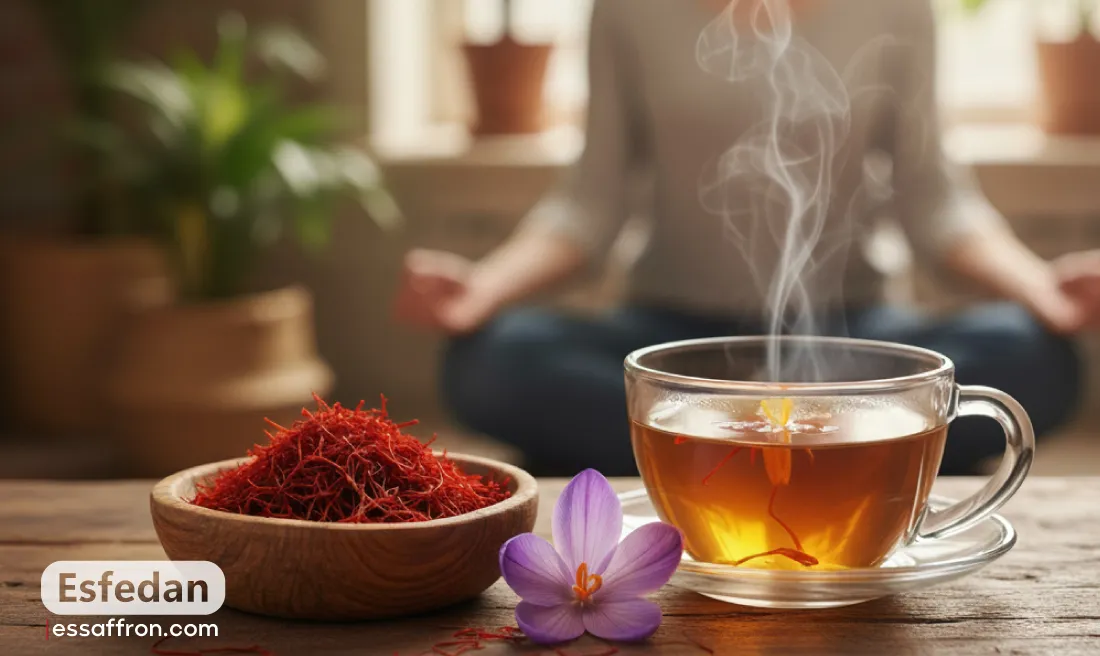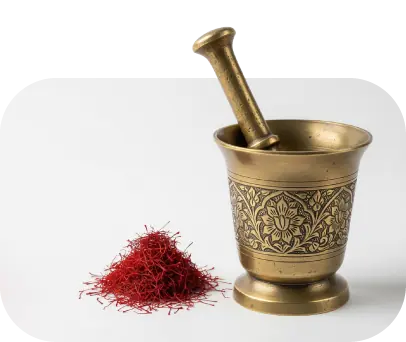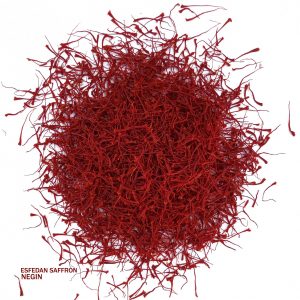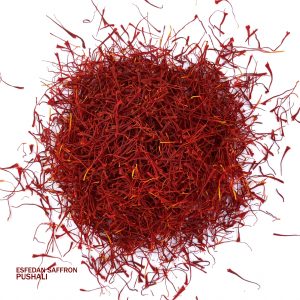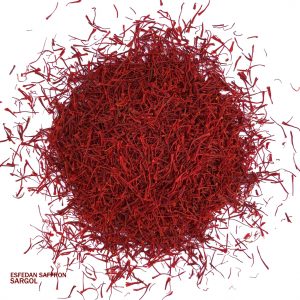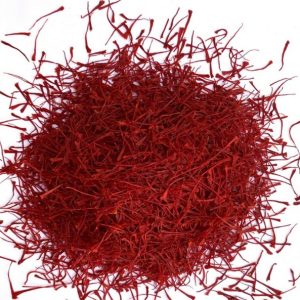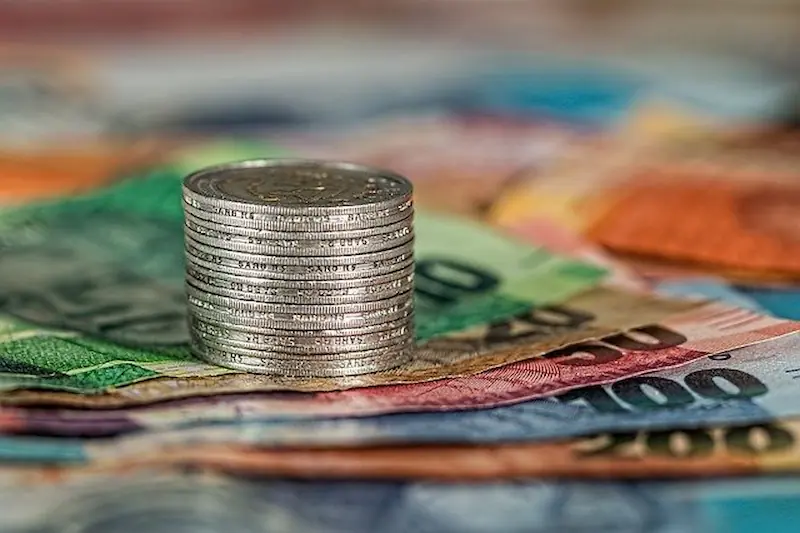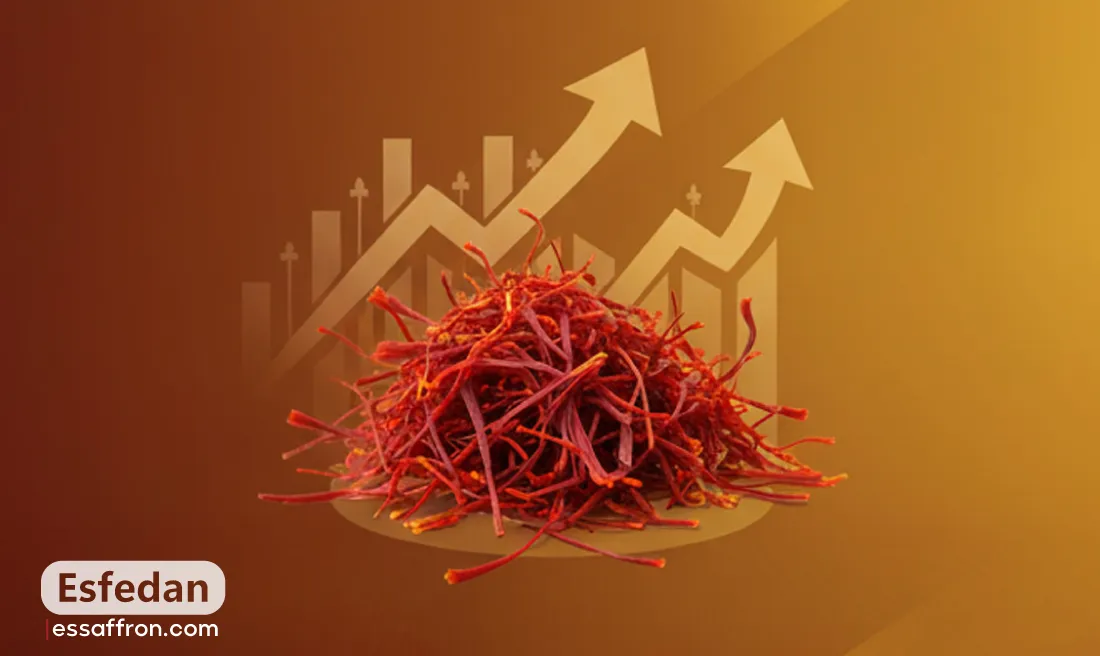Saffron has been the object of scientific study, in recent years, for possible therapeutic effects. In this regard, this article provides a critical analysis on the following question: Does saffron reduce anxiety? This article also aims to discuss research evidence, the mechanism of action, dosage, and safety of saffron, to answer the question.
What Is Saffron?
Saffron is only made up of the bright red stigmas and styles of the Crocus sativus flower, which are handpicked and dried. A flower only produces three stigmas, and the manual labor needed to harvest them combined with the growing conditions and soil requirements that the Crocus sativus needs to grow make saffron the most expensive spice by weight.
The three main bioactive components of saffron are crocins (responsible for saffron’s colour), picrocrocin (responsible for saffron’s flavour), and safranal (responsible for saffron’s aroma). These have been the components most associated with saffron’s possible antidepressant and anxiolytic effects.
read more: What Is Saffron?
Saffron and Anxiety: What’s The Science Behind It?
The use of saffron as a potential treatment for mood and anxiety has been the subject of a growing body of research in the last ten years. A simple question like, “Does saffron reduce anxiety?”, has been supported by clinical and preclinical studies seeking to understand the therapeutic potential and biological basis of this phenomenon.
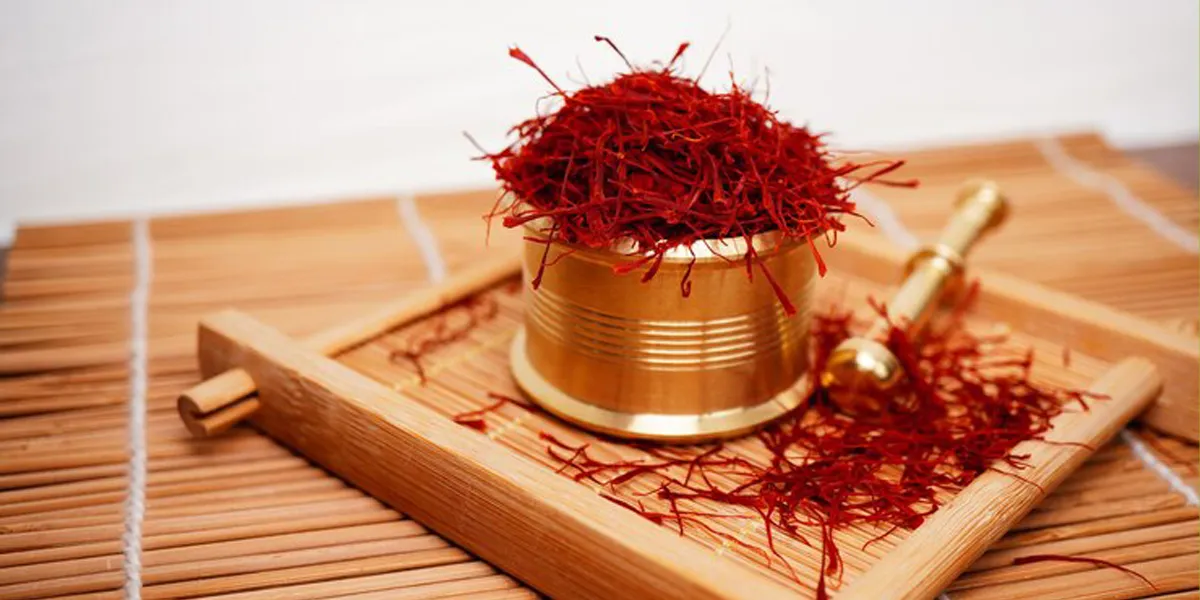
What the Research Shows / Clinical Evidence
Scientific studies, including randomized clinical trials and meta-analyses, indicate saffron may help treat anxiety and depression.
Anxiety and Depression: Randomized, controlled trials indicate saffron supplementation results in similar benefits to those of standard antidepressants like fluoxetine and imipramine for treating mild to moderate depression. Because there is a strong overlap between anxiety and depression, it can be inferred that saffron also has a broader psychotropic effect on anxiety.
Premenstrual Syndrome (PMS): Studies on saffron’s effect on PMS and premenstrual dysphoric disorder (PMDD) note decreases in emotional symptoms including irritability and anxiety.
Sleep: Saffron appears to have an effect on neurotransmitters associated with sleep, which could also indirectly have an effect on anxiety.
The data available are promising but most trials are still fairly limited by small sample size and short duration. Large long-term trials are needed to be more conclusive and to determine appropriate dosing. In the meantime, saffron may be used as a natural treatment for mild anxiety.
How Saffron Works in Anxiety?
The anxiolytic properties of saffron are believed to be the result of several overlapping neurochemical and physiological actions of its bioactive components.
Inhibition of Serotonin Reuptake: Saffron contains compounds that may act as serotonin reuptake inhibitors (SSRIs), leading to increased levels of serotonin in the brain.
Modulation of Dopamine and Norepinephrine: The active ingredients in saffron also seem to modulate dopaminergic and noradrenergic neurotransmission, both of which are involved in the regulation of mood and anxiety.
Antioxidant Properties: Due to its rich carotenoid content, including compounds like crocin and crocetin, saffron has demonstrated antioxidant effects which may protect brain cells from oxidative stress, a contributing factor in anxiety and depression.
Anti-inflammatory Effects: Inflammation has been implicated in mood disorders, and saffron’s anti-inflammatory properties may play a role in its therapeutic effects on mood and anxiety.
Enhancement of GABA Activity: Some studies suggest that saffron may potentiate the activity of gamma-aminobutyric acid (GABA), an inhibitory neurotransmitter in the brain, which could lead to decreased neuronal excitability and anxiety.
Comparison with Pharmaceuticals
In mild-to-moderate cases, saffron has been found to have antidepressant activity comparable to that of certain medications. However, it is not a replacement for medical treatment of serious anxiety disorders. That said, its high tolerability and low side-effect rate make it a good candidate for an additional intervention, provided it is integrated into treatment under medical supervision.
Saffron and Other Conditions: Saffron may also be a useful addition to the treatment of a variety of other conditions:
Erectile Dysfunction: There is some evidence that saffron may improve symptoms of sexual dysfunction, possibly as a result of its ability to improve mood and reduce anxiety.
Alzheimer’s Disease: The antioxidant and neuroprotective activity of saffron are currently being studied for their ability to fight cognitive impairment and neurodegeneration.
Attention-Deficit/Hyperactivity Disorder (ADHD): Saffron has shown potential as a natural ADHD treatment with its ability to help with focus and mood regulation, but further high-quality studies are needed to validate these findings.

Saffron has some extra systemic effects, such as anti-diabetic activity, anti-AMD, and possible anti-cancer activities, which further supplements the overall holistic action of saffron.
More information: Health Benefits of Saffron
How to Take Saffron for Anxiety?
Clinically, the two forms of therapeutic saffron include:
Whole Saffron Threads: These are traditionally used as part of teas or food dishes, but can be less standardized and thus less reliable.
Saffron Extracts: Capsules or tablets that contain standardized extracts of saffron, this is the preferred form, as it provides the most standard dose.
read more: Instant Saffron Extracts
Recommended Dosage of Saffron for Anxiety?
Clinical research typically employs 30–50 mg of standardised saffron extract daily, divided into two doses. For whole saffron threads, equivalent daily consumption is estimated at approximately 150–200 mg, though standardisation remains difficult. Professional medical consultation is recommended before beginning supplementation, particularly for individuals using concurrent medications.
Side effects Anxiety
- Safe: Saffron is safe at therapeutic doses, but the following should be considered:
- Mild side effects: Nausea, headache or dizziness that usually resolves spontaneously.
- Side effects at very high doses: There are reports of side effects, such as uterine bleeding, jaundice and toxicity at high doses (more than 5 g/day).
- Drug interactions: Possible interactions when saffron is taken with blood thinners, blood pressure medications or serotonergic antidepressants.
- Pregnancy and lactation: May cause uterine contractions; contraindicated in pregnancy; the effects on breast milk are not well studied.
Who should not use saffron?
Persons with bipolar disorder or bleeding disorders, or for whom surgery is planned, should not use saffron or should do so only under medical supervision. Cross-sensitivity has been observed in those allergic to Lolium, Olea, or Salsola species. Consultation with a healthcare provider is advisable before starting any new supplement regimen, including saffron, particularly for those with pre-existing medical conditions or on prescription drugs. It is important not to self-medicate, especially in the case of pharmacotherapy for anxiety or depression.
What is Anxiety?
Anxiety is a multifaceted response involving a wide range of physical and psychological reactions to perceived threats or stressors. Symptoms include but are not limited to a feeling of fear, apprehension, nervousness, or unease, along with somatic manifestations like palpitations or restlessness. Anxiety disorders occur when this response is excessive, persistent, and disproportionate to the actual situation, causing significant distress and impairment in daily functioning. For a more detailed look at how anxiety works, see this post.
Can Saffron Be Part of My Treatment Plan?
Saffron can be part of a treatment strategy. It’s not a standalone cure but might be used in addition to other therapies. For some, it can enhance the effects of a treatment plan, or it can be an alternative if a person cannot tolerate a particular medication. If a healthcare provider suggests saffron as part of a treatment plan, it’s important to monitor its effects on symptoms and watch for any interactions with other medications or supplements.
Buy Safe Saffron
When shopping for saffron, look for sources that clearly state the origin and provide certificates of analysis. Due to the high risk of saffron being counterfeited, finding genuine saffron can be a challenge. Seek a reputable, quality-assured company that will use ISO 3632 grading and has had the product verified by a reputable independent laboratory. For maximum purity and potency, choose a standardized extract from a reliable nutraceutical manufacturer.
read more: Guide to Purchasing Saffron
The Bottom Line
In conclusion, saffron shows promise as a natural, safe, and effective option for the treatment of anxiety. It may be of particular benefit for people with mild to moderate anxiety, or those who may be seeking a natural alternative to conventional anxiolytics. Its neurochemical modulation, antioxidant properties, and potential anti-inflammatory effects contribute to its therapeutic action, with safety and tolerability well-established at clinically validated dosages. As with any treatment, it’s important to use saffron under the supervision of a healthcare provider to ensure its efficacy and safety, and to monitor its effects on individual symptoms.


